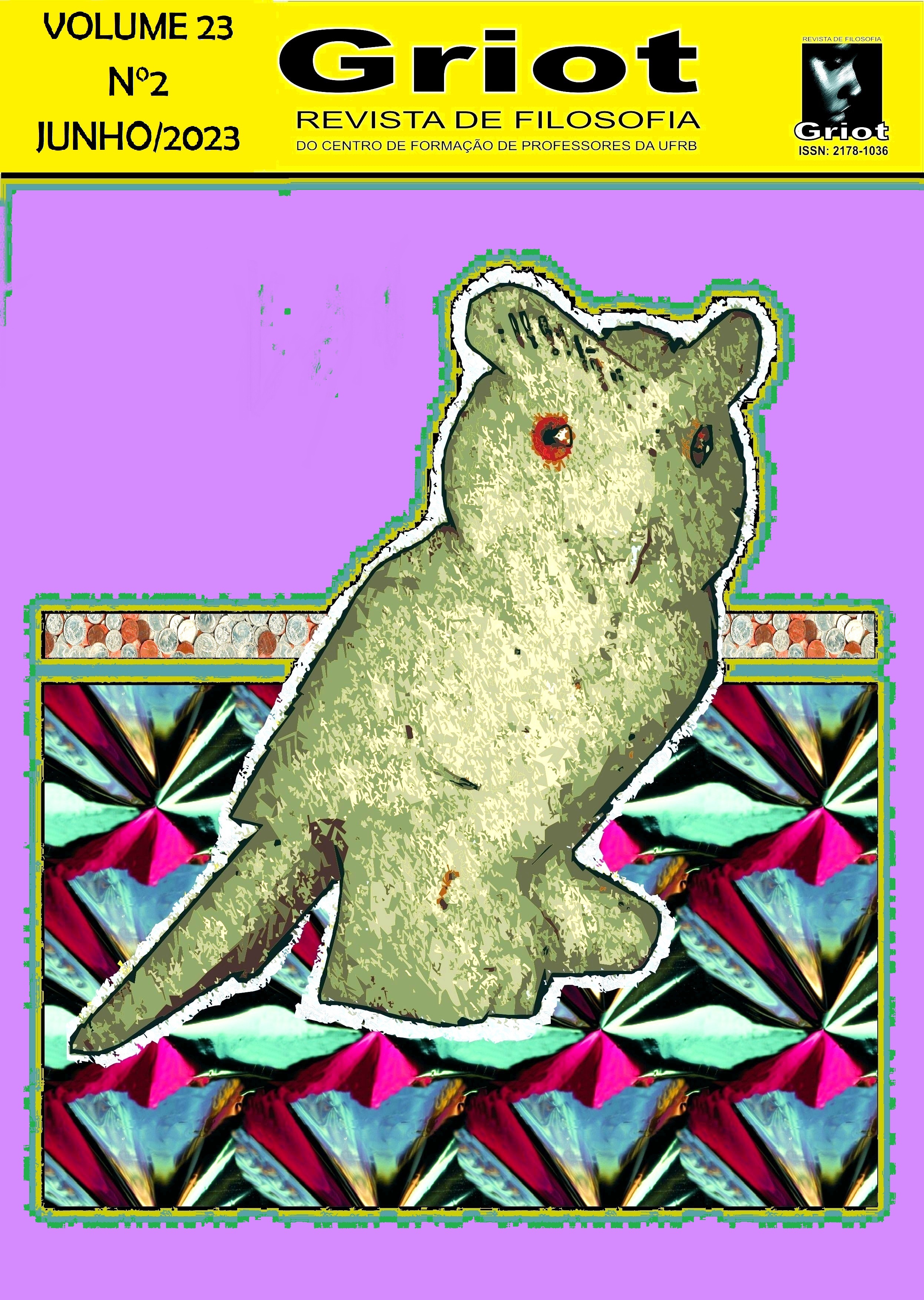On the notion of organism in Martin Heidegger’s ontological emergentism
DOI:
https://doi.org/10.31977/grirfi.v23i2.3407Keywords:
Heidegger; Ontology; Emergentism; Metaphysics; Naturalism.Abstract
Contrary to panpsychist ontologies present in the work of authors such as Alfred North Whitehead and Gottfried Leibniz, Martin Heidegger proposes an emergentist perspective illustrated by his well known distinction in which the stone is worldless, the animal is poor in world and men is world-forming. By admitting the qualitative ontological surpassing between matter and life or non-intentionality and intentionality, Heidegger advocates for a phenomenological justified emergentism. That being said, the paper demonstrates how Heidegger’s ontology presupposes a qualitative distinction between physical, biological and human spheres by describing the concept of organism proposed by the german philosopher.
Downloads
References
CANGUILHEM, G. O Normal e o Patológico. Rio de Janeiro: Forense Universitária, 2009.
CHALMERS, D. Panpsychism and Panprotopsychism. www.consc.net, 2013. Disponível em: <http://consc.net/papers/panpsychism.pdf>. Acesso em: 14 de junho de 2023.
GIBSON, J. J. The Ecological Approach to Visual Perception. United Kingdom: Psychology Press, 2014.
HEIDEGGER, M. Os Conceitos Fundamentais da Metafísica: Mundo, Finitude, Solidão. Tradução: Marco Antônio Casanova. Rio de Janeiro: Forense Universitária, 2011.
HEIDEGGER, M. Ser e Tempo. Rio de Janeiro: Editora Vozes, 2005.
JAMES, W. A Pluralistic Universe. In: William James: Writings 1902-1910. New York: Library of America, 1988.
JONAS, H. Organismus und Freiheit. Ansätze zu einer philosophischen Biologie. Göttingen: Vandenhoeck and Ruprecht. Das Prinzip Leben. Frankfurt am Main und Leipzig: Insel, 1973.
JONAS, H. The Phenomenon of Life: Toward a Philosophical Biology. Illinois: Northwestern University Press, 2001.
LEIBNIZ, Gottfried. A Monadologia e outros textos. São Paulo: Editora Hedra, 2009
MATURANA, H.; VARELA, F. De Máquinas e Seres Vivos - Autopoiese: A Organização do vivo. Porto Alegre: Ed.Artes Médicas, 1997.
MERLEAU-PONTY, M. A Natureza: Curso do Collège de France. Tradução de Álvaro Cabral. São Paulo: Martins Fontes, 2000.
RAMOS, Silvana de Souza. A Prosa de Dora: Uma Leitura da Articulação entre Natureza e Cultura na Filosofia de Merleau-Ponty. São Paulo: Edusp, 2013.
ROUX, Wilhelm. Archiv für Entwicklungsmechanik der Organismen. Londres: Forgotten Books, 2019.
SARTRE, J. P. O Ser e o Nada: Ensaio de Ontologia Fenomenológica. Rio de Janeiro: Editora Vozes, 1998.
SCHRÖDINGER, Erwin. O que é vida? Seguido de Mente e Matéria & Fragmentos Autobiográficos. São Paulo: Editora Unesp, 1997.
UEXKÜLL, Jakob Von. A Foray into the Worlds of Animals and Humans. Minnesota: Editora University of Minnesota Press, 2010.
VIVEIROS DE CASTRO, E. Metafísicas canibais: elementos para uma antropologia pós-estrutural. São Paulo: Cosac Naify, 2015.
WAAL, F. de. Are we smart enough to know how smart animals are? New York: W.W. Norton& Company, 2016.
WHITEHEAD, A. N. A Ciência e o Mundo Moderno. São Paulo: Editora Paulus, 2006.
WHITEHEAD, A. N. The Concept of Nature. Cambridge: Cambridge University Press, 1995.
WHITEHEAD, A. N. Process and Reality: An Essay in Cosmology. Londres/Nova York: The Free Press/Macmillan, 1979.
Downloads
Published
How to Cite
Issue
Section
License
Copyright (c) 2023 Rodrigo Benevides Barbosa Gomes

This work is licensed under a Creative Commons Attribution 4.0 International License.
The authors who publish in Griot: Revista de Filosofia maintain the copyright and grant the magazine the right of first publication, with the work simultaneously licensed under the Creative Commons Attribution 4.0 International License, allowing sharing and adaptation, even for commercial purposes, with due recognition of authorship and initial publication in this journal. Read more...









































































